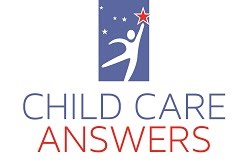This video is ALMOST too frightening to watch! But trust me, it all comes out OK in the end! Someone in our office came across this video last night and sent the link via email. I was BLOWN away by this and had never heard of it. I found myself thinking back to the story this summer of the little girl that drowned in the swimming pool of a foreclosed home here in Indy, would she still be alive if she had this training?
Before you view this video a couple of things:
- This child has already been through this training, several years ago.
- The child's father is in the pool with him the ENTIRE time, the child was NEVER in any true danger.
- This training DOES NOT take the place of constant vigilance around any body of water.
- Child Care Answers does not support or endorse this program, we are merely attempting to provide parents, child care providers and community leaders with tools for child development.
This information is absolutely invaluable in my opinion and something EVERY parent that lives near a body of water needs to investigate!
In Indianapolis this training is offered by:
Barb Davis
Certified Instructor Phone: (317) 529-2763
Email: b.davis@infantswim.com
and
Yiwen Fung
Certified InstructorPhone: 317-489-9221
Email: y.fung@infantswim.com
Website: http://www.indyselfrescue.com/









4 comments:
I find it very disturbing that Child Care Answers would appear to promote something such as this. Any child care with water access (pool, pond, waterfront, garden pond) must secure it. Many local regulations require individuals with water access to ensure that it is secured at all time or be criminally liable.
This training does not substitute for basic safety or common sense. In fact has this (or any) child struck its head, the training would be useless. If this child has ingested water prior to right itself , the child could be at risk for hydropoisoning. Had the child inhaled any small amount of water it could drown immediatly despite being righted, or in the following hours from dry drowining. If the temperatures were cold the child could become hypothermic and be in danger despite being righted. If the clothing became waterlogged and heaby the child could be pulled under.
I find it DISGUSTING that basic safety and common sense would be ignored by an agency that is expected to promote the highest in quality care for young children.
PARENTS and CARE PROVIDERS: IGNORE THIS!
You are absolutely correct, this is NOT meant to be a replacement for basic safety and common sense.
Thank you Child Care Answers for sharing this story. I think every parent should be aware that self rescue techniques can be learned by infants and young toddlers.
There could be countless reasons why a young child or even an adult cannot survive a drowning. Hummingbird, you could have listed so many more. Did the child get stabbed first? Or did the child have suicidal tendencies?
My point is, with these circumstances aside, if the child accidentally falls in the water, this training empowers the child to relax, float on his/her back and even swim towards the edge of the water.
Any good parent would use common sense and good judgment for basic safety around a body of water. And any parent can also name a time when he took his eyes off for literally 3 seconds, something horrible happened or could have happened. Kids are that quick.
So with all the common sense and local regulations in place, there ought to be no drowning of young children, right? Why would any parent be so close-minded and not learn another level of protection?
I put my 2 year-old daughter through this ISR program, and am amazed at how she responded in the water. Her comfort level in a body of water became one of calm confidence. Would I let her alone at pool side unattended? No. But I know if a horse playing neighbor kid shoved her in the pool, she would not drown in the amount of time it takes me to reach her.
I can’t speak enough positive things about the ISR program, and encourage all parents to learn about it for themselves. Talk to those who have put their own child through it. Unqualified if’s are only that… what if’s? The fact is, the child can save his/her self in the precious seconds and minutes of falling into a body of water.
While I think the previous poster reacted a bit harshly and emotionally, I will say that I am surprised to see this post on the Child Care Answers blog. I would like to know what the research of the effectivenss of this sort of program is, not just who will let me pay them to do it. To say you were "blown away" and you found it "interesting" makes this sound more like something that should be on your personal blog, not a professional one.
I had subscribed to this blog thinking it would be a professional resource, I am thinking of unsubscribing if it will continue to contain such controversial, unproven and personal interest topics.
Post a Comment